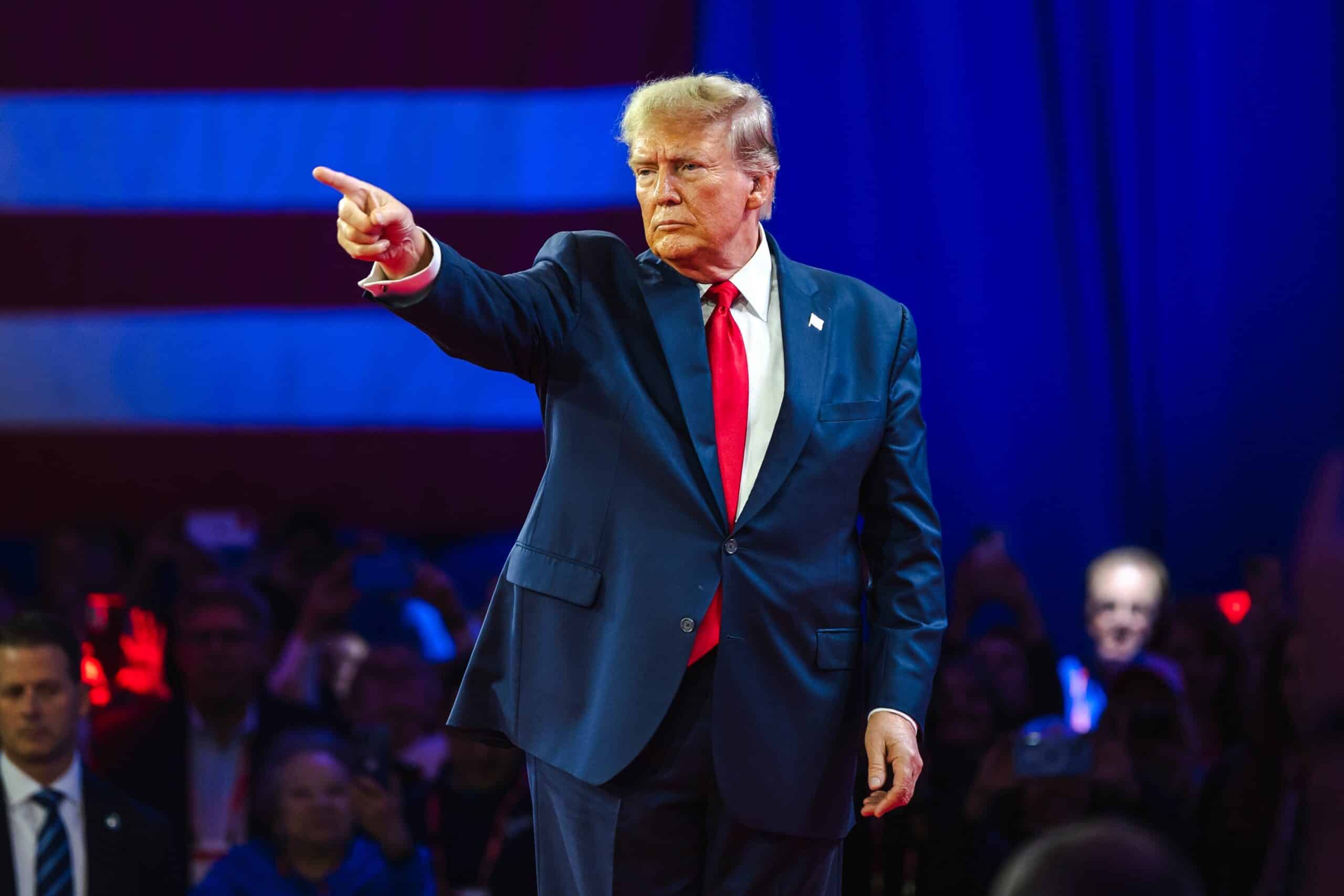Recent reports that president-elect Donald Trump’s team is actively vetting candidates for a new “crypto czar” position at the White House have led to rampant speculation in the crypto community about who Trump might choose for the role. But details about who might be eligible for the position and how it might relate to a new crypto advisory council, which Trump had earlier promised to create, are still sparse.
For example, Coinbase CEO Brian Armstrong, who met with the Trump transition team at Mar-A-Lago this week, is more likely a candidate for a crypto advisory council, not a role in the White House, four sources active in crypto policy circles say. This is in part because current restrictions enforced by the Office of Government Ethics (OGE) stipulate that federal staff own only a “de minimis,” or negligible amount, of crypto and not have other significant financial conflicts of interest. Armstrong, for example, would be disqualified under this provision because of his personal crypto holdings and his leadership of Coinbase, which is embroiled in a lawsuit with the SEC and has a stock price that fluctuates in response to news about crypto policy.
Trump promised the crypto community that he would create a crypto-focused “advisory council” at the Bitcoin 2024 conference in July. Sources say that people surrounding the president-elect have been floating the idea of creating a separate role in the White House, which they typically refer to as a “crypto czar,” since July as well, which would theoretically be distinct from the council.
Read more: Treasury Secretary Contender Kevin Warsh Was an Early Investor in Crypto Startups
Though several sources say it’s likely that Trump would appoint people to both the council and a separate White House role, they also say that the details of who would fill any of these positions are still vague and will develop in the coming months. Other sources who spoke with Unchained are unwilling to go so far as to predict whether Trump would have one or both a council and White House staffer focused on crypto, because details they receive are in constant flux. The job descriptions for either could easily be changed by Trump at any second, one source with information about the discussions surmised.
Two of these sources, as well as another, separate source active in crypto policy said that advisory council picks would likely be executives of major crypto companies who also donated generously to Trump’s campaign. Those sources mentioned Armstrong, venture capitalist Marc Andreessen, Gemini co-founders Cameron and Tyler Winklevoss and the executives of bitcoin mining companies that met with Trump in at Mar-a-Lago in June as examples of the type of people Trump is considering for the advisory council, although they cautioned that they were not aware of a specific list of people that are being vetted. Other sources more distantly connected to the discussions had a similar understanding of who was being considered.
A Key Distinction
A crypto czar or similar White House advisor would likely be someone with a policy background, three sources said, noting that details about the role are unclear. This is in large part because of the current aforementioned OGE rule that prohibits such a person from owning crypto, though some speculate that Trump could appoint a new Director of OGE that could waive that restriction for federal staff. The current director, Shelley Finlayson, is in an acting role, and is thus only temporarily leading the Office.
Read more: The Trump-Connected Brad Bondi Is a New SEC Chair Contender and Pro-Crypto
The Digital Chamber, a blockchain industry group, wrote a letter to the OGE last week asking it to waive the requirement, but neither the OGE nor Trump transition teams have responded to the request, according to Digital Chamber president Cody Carbone. Trump has also ignored potential conflicts of interest when nominating officials for other roles such as director of the Department of Government Efficiency and director of National Intelligence, raising the question of whether Trump would allow the OGE crypto restriction to limit his potential picks for a crypto czar.
“They want someone serious” for the White House role, said one source who is active in crypto policy conversations. The lack of clarity about who would qualify for the role has left sources who spoke with Unchained unsure about the accuracy of reports that the Trump transition team is seriously vetting candidates at this stage.
A New Contender
One source speculated that former CFTC Chair under Trump Chris Giancarlo could fill the crypto czar role. In an X post published last Thursday by Giancarlo, who earned the nickname “Crypto Dad” for his pro-crypto stances, said that he was not interested in the role of either SEC chair or a crypto role at the Treasury. But Giancarlo did not say he was uninterested in a White House or advisory council role, the source pointed out. Unchained was unable to confirm whether Giancarlo personally owned any crypto.
Giancarlo had been considered a top contender for the SEC and Treasury roles because he was already vetted by the Trump team when he was nominated to the CFTC in 2017, and had been making authoritative comments on how a Trump administration could and should regulate crypto at conferences and closed-door events, which onlookers who took as hints Giancarlo would get a role in a Trump administration.
In fact, three sources who spoke with Unchained speculated that Giancarlo’s own self-promotion would have hurt his chances of obtaining either role, and speculated that the X post may have been written to counter these perspectives. Trump has reportedly been frustrated by candidates for other positions, such as Commerce Secretary nominee and previous contender for Treasury Secretary Howard Lutnick, advocating too strongly for themselves.
Chris Giancarlo did not respond to emailed requests for comment.
UPDATED (Nov. 21 4:00 p.m. ET): This story was updated to indicate that Chris Giancarlo did not respond to requests for comment. Subheds were also added.



